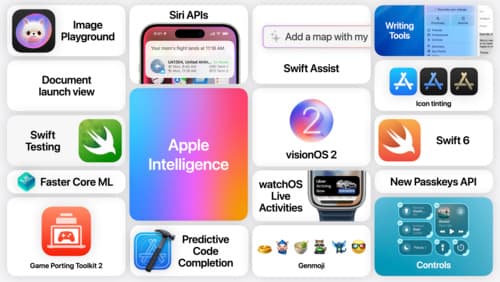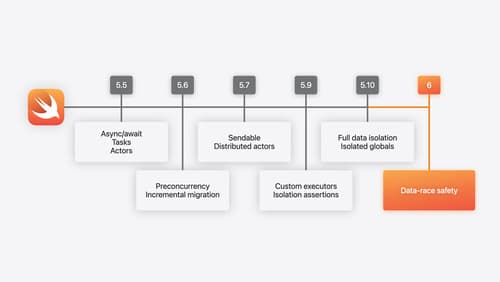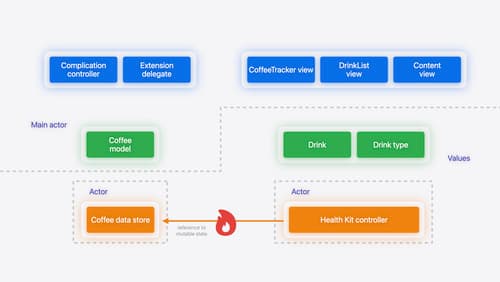There's a compiler error when building my iOS app with xcode 15.3 or newer. What should I do?
Asked on 2024-07-31
1 search
To address a compiler error when building your iOS app with Xcode 15.3 or newer, you should consider the following steps:
-
Check for Swift 6 Compatibility: Ensure that your app is compatible with Swift 6. Swift 6 introduces new language features and concurrency safety guarantees that might cause issues if your code is not updated. You can start by enabling warnings for upcoming Swift 6 features incrementally. This will help you identify and fix potential issues before they become errors. For more details, you can refer to the session Migrate your app to Swift 6.
-
Enable Explicit Modules: Xcode 16 introduces explicit modules, which improve build performance and diagnostics. For Swift, you need to opt-in to use this feature. You can enable explicitly built modules in the build settings of your project. This might help resolve some build issues related to module dependencies. For more information, see the session What’s new in Xcode 16.
-
Concurrency Safety: If your app uses concurrency, make sure that your global variables and instances are concurrency-safe. Xcode 16 provides warnings for concurrency issues, which can help you identify and fix data races. You can start by enabling warnings for concurrency safety features in the build settings. For more details, refer to the session What’s new in Xcode 16.
-
Review Compiler Diagnostics: The new Swift compiler diagnostics can guide you towards places in your code that need fixing. Treat these diagnostics as a pair programmer pointing out potential bugs. This structured approach can help you migrate your code more effectively. For more insights, see the session Migrate your app to Swift 6.
By following these steps, you should be able to resolve the compiler errors and successfully build your iOS app with Xcode 15.3 or newer. If you encounter specific issues, reviewing the relevant WWDC sessions can provide additional guidance and examples.

Platforms State of the Union 5-Minute Recap
Watch a quick recap of the newest advancements on Apple platforms.

What’s new in Swift
Join us for an update on Swift. We’ll briefly go through a history of Swift over the past decade, and show you how the community has grown through workgroups, expanded the package ecosystem, and increased platform support. We’ll introduce you to a new language mode that achieves data-race safety by default, and a language subset that lets you run Swift on highly constrained systems. We’ll also explore some language updates including noncopyable types, typed throws, and improved C++ interoperability.

Migrate your app to Swift 6
Experience Swift 6 migration in action as we update an existing sample app. Learn how to migrate incrementally, module by module, and how the compiler helps you identify code that’s at risk of data races. Discover different techniques for ensuring clear isolation boundaries and eliminating concurrent access to shared mutable state.
